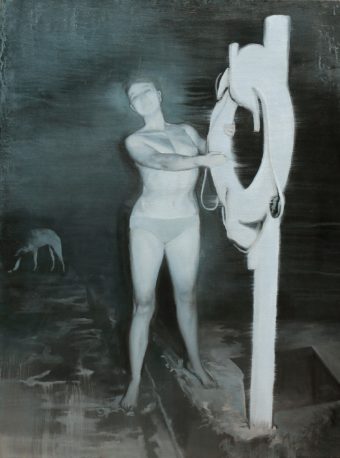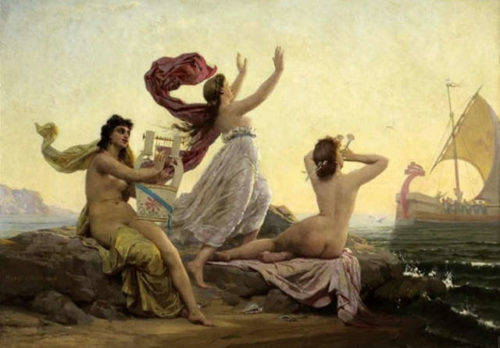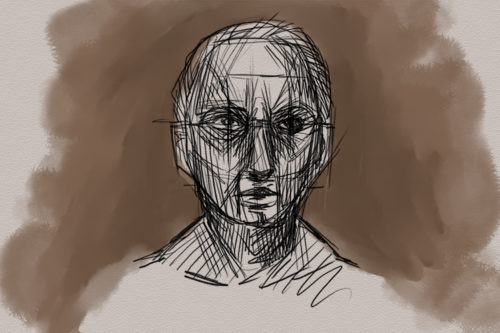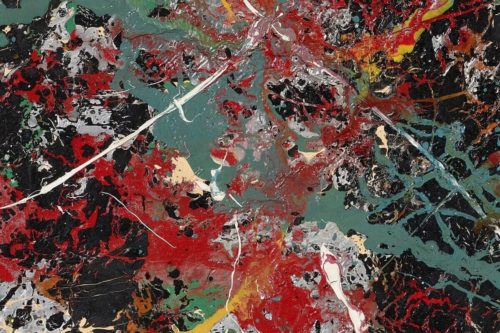
Costica Acsinte, photography.
“Art’s truth appears guaranteed more by its denial of any meaning in organized society, of which it will have no part—accomplished by its own organized absence of meaning—than by any capability of positive meaning within itself.”
Theodor Adorno (Philosophy of Modern Music)
“To be rooted is perhaps the most important and least recognised need of the human soul. It is one of the hardest to define. A human being has roots by virtue of his real, active and natural participation in the life of a community which preserves in living shape certain particular treasures of the past and certain particular expectations of the future.”
Simone Weil (The Need for Roots)
“I can resist everything but temptation.”
Oscar Wilde (Lady Windermere’s Fan)
“Sir Alfred Lyall once said to me: ‘Accuracy is abhorrent to the Oriental mind. Every Anglo-Indian should always remember that maxim.” Want of accuracy, which easily degenerates into untruthfulness, is in fact the main characteristic of the Oriental mind’.”
Earl of Cromer (Modern Egypt, 1908)
History weighs on those who do not study it. I believe one reason for the popularity of zombie films and TV shows, which are reconstruction narratives, is that history is gone from everyday life. In HBOs The Last of Us the poignant part (and yes there were one or two) was a sense of history that has disappeared. The loss of learning, literature, science, and religion is an existential presence throughout. The fact HBO is now adapting video games is worth noting, too. But any of these post apocalyptic franchises appeal in part because of the relief afforded by the jettisoning of the burden of history. In the HBO show the loss of history is given a pseudo specificity, but its ‘lostness’ is operative by its absence. Its an abstract history. It is the disruption of allegory by lost meaning.
Related to this is the increasing sense of conformism I see everywhere. And this is where the importance of *influencers* has to be discussed. There have always been public intellectuals, and for a long while now, celebrities. But *influencer* is a relatively new concept. (God forbid an influencer be viewed as an intellectual — I mean there goes his or her influence).
Google defines influencers this way ” An influencer, also referred to as a social media influencer, is someone who leverages social media channels to influence followers’ buying decisions. Successful influencers typically offer value on social media with quality content that shares specialized knowledge, “edu-tainment,” or insight into a niche topic.” But of course it is more than just buying decisions. Or perhaps, even moral and political issues are not seen purchases.
A site called Influencer Marketing Hub writes “It is important to note that these individuals are not merely marketing tools, but rather social relationship assets with which brands can collaborate to achieve their marketing objectives.”
So, social relationship assets. Later on the same site: “They make regular posts about that topic on their preferred social media channels and generate large followings of enthusiastic, engaged people who pay close attention to their views. Brands love social media influencers because they can create trends and encourage their followers to buy products they promote.”
But this is the substrate, in a sense. And as such it speaks to the fact that advanced capitalism has turned literally everything into a form of product or commodity. And while this has been true for sixty years, probably, it is now absolute. Marketing opinion, of course, is what advertising firms have done for a long time, now. I will address conformism and influencers more below.

Li Songsong
It is history, however, that casts a massive shadow across the discussion of literally everything today; or rather its absence, a computer generated shadow of history is cast. But to begin a discussion of history requires a rather long prologue. And since I will refer to Adorno throughout this, it might be useful to quote from a letter Adorno wrote to Max Horkheimer during their collaboration on Dialectic of Enlightenment. Horkheimer had objected to what he saw as *divinatory* in Adorno’s prose. Something he felt was both too resonant of Heidegger and Nazi mythology, and paradoxically, too bourgeois. Adorno answered…
“I would object to your writing that it has an element that conspires with the status quo. Your writing is beneath the experiences that you want to communicate, my writing is above what I am able to communicate.”
Robert Hullot-Kentor’s book Things Beyond Remembrance, a study of Adorno, quotes from early transcripts of Dialectic of Enlightenment, ones where Odysseus was still Oedipus. Adorno wrote…
“There is a mythical category, which one would need to analyze carefully: cunning. Humanity pulls itself free of nature through cunning. Oedipus eliminates the puzzle of the sphinx by a trick, he does not actually solve it.”
Cunning was, per Hullot-Kentor, the cipher through which Adorno saw progress.
“Cunning develops as progress in sacrificial substitution. The power to substitute an ox for a human sacrifice is no different from the power of the employer to substitute the labor of others for the employer’s own. ”
Robert Hullot-Kentor (Ibid)
The hostility toward Adorno, which has become acute, is always a rearguard action from the bourgeoisie, the need to neutralize both Marxism and psychoanalysis. Everyone from Habermas to Gabriel Rockhill to Jacobin magazine work overtime to subvert radical critiques of society. And it is often done in the name of radicalism. And it seems to me that more than ever Adorno looms as the most important thinker of the last hundred and fifty years.

Yvon Lambert, photography.
“Substitution in the course of sacrifice marks a step toward discursive logic. Even though the hind offered up for the daughter, and the lamb for the first-born, still had to have specific qualities, they already represented the species. . . . Substitutability reverses into universal fungibility.”
Adorno and Horkheimer (Dialectic of Enlightenment)
One can fast forward to AI and science today and see the effects of this ‘substrate’ of universality. In fact…
“The unity of knowledge sought by physics is the epitome of the ruse of reason in that this unity is the result of the sacrificial abstraction of the particularity of the world as a whole. ”
Robert Hullot-Kentor (Ibid)
Every advance (sic) in medicine and science has carried with it trace elements of sacrificial abstraction. And when this logic turns inward the sacrificial becomes renunciation. And here is where Freud becomes so important. Renunciation is domination of self. As Hullot-Kentor notes “Cunning resists nature qua myth, but in its sacrificial order it becomes myth.”
Hullot-Kentor observes as well, that in German philosophy, beginning in the early 18th century, Aristotle’s concept of nature, the established idea of the antithetical qualities of technique and nature became the idea that technique can recreate nature. And again, to fast forward to AI and digital screen tech (and its influencers) we see how embedded this reversal has become. Today there is a massive ruling class project to incrementally (or wholesale) reduce freedom of movement. Travel will be only for the very wealthy and privileged. For everyone else technique (digital) can provide nature on their screens. Cunning then, emerges out of sacrifice as reason.

Franklin Rawson
“Francis Bacon throws paint onto his canvases, but nothing would appear in these splashes without the constructive technique that is brought to bear on them; anti-intellectualism characterizes more poets manqués than otherwise. And there would be no Odyssey without the mind of Odysseus. { } Adorno’s aesthetics are a continuous reflection on the idea of the possible reversal of domination into liberation.”
Robert Hullot-Kentor (Ibid)
Contemporary art, at least the majority of it, and certainly entertainment, has utterly lost the liberatory quality that first surfaced, perhaps, as domination in Homer. The emergence of the novel from the epic suggests a privileging of prosaic narration at the expense of mythic chant and paganism. It is an interesting side-bar in this that Walter Benjamin saw the *story* as the precursor to ‘happily ever after’ (and entertainment). For Adorno, the novel itself was already ‘happily ever after’. In other words, the fairy tale must first become a novel, THEN a fairy tale. But the point is that, for Adorno, cunning was already mythical.
Hullot-Kentor amusingly concludes a chapter with a quote of Habermas “How can these two men of the Enlightenment (which they both remain) be so unappreciative of the rational content of cultural modernity that all they perceive everywhere is a binding of reason and domination?”
Jurgen Habermas (The Entwinement of Myth and Enlightenment: Horkheimer and Adorno)
How indeed, Jurgen.
The turn inward, the domination, as it were, of subjectivity, is manifested today in a crisis of clinical depression in the U.S. (and certainly in much of Europe). This domination, it needs to pointed out again, is expressed in class structures. For the subordinate classes there is always a sense of self blame. This is the message of the ruling class, after all. The poor are poor because they lack the skills to be rich.
“Inwardness is the historical prison of primordial human nature.”
Theodor Adorno (Kierkegaard)
The idea of climate catastrophe and apocalypse is something I have written of before: https://john-steppling.com/2019/04/nature-is-unnatural/

Ahmed Morsi
“We project onto the future what we cannot endure as something which already occurred, or which is happening now. We still believe that the worst is yet to come—it is a perspective, but not a reality, and therefore our reality is still not that bad. A fear of the future and anxiety about some indefinite event (“we will all die”) is easier to suffer than a certain, irreparable, and irreversible horror that has just happened (“we are all already dead”).”
Oxana Timofeeva (E Flux, June 2014)
Today, the future is being manufactured as a commodity. One buys the future one wants, and not even one’s own future, but just future in general. The universal future but labeled as *Your Future*. Personalized. The shift from advertising to marketing was the start of this transformation to words like *lifestyle*. Generic and non specific, but treated as personal. Everything is now personal. Identification with the general. But first, I think a better understanding of how history is conceptualized. For one aspect of this topic is found in Adorno’s polarising essay The Idea of Natural History. What concerns me here is how western society, and culture, has inherited a bourgeois notion of both nature and history. And in a sense, the Zombie franchises are all bourgeois fantasy. As Adorno and Horkheimer observe, Odysseus flees mythology only to reproduce it. Zombies are the living dead. And, as in The Last of Us, they are infected (with mutated cordyceps in this case) — and cannot really die because they are all one. A single organism.
“…to understand that what is called “convergence” indicates not just media convergence (the fact that audio, video and text can all be digitized), but rather a total informatic convergence in which financial, biometric, and computational operations are increasingly unified.”
Jonathan Beller (The Message is Murder)
One can flee and try to exterminate (in this show the implication is the military bombed whole cities to try to rid mankind of this cordyceps plague) but the infection is *us*. We are it’s host. This is the same myth as seen in Climate Change. Note that the bombing of the innocent, but *infected* is seen as a project of health and security.
Zombie as fungible universalism. That these post apocalyptic narratives almost all employ zombies in one form or another suggests there is an unresolvable nominalist argument involved. The point here is that today the entire AI debate (and marketing program) is the logical endgame for the problems Adorno and Horkheimer pointed toward.
This sort of prologue is necessarily dense. So allow me to quote Hullot-Kentor’s introduction to Adorno’s essay on Natural History. Beginning with Odysseus and Homer.
“The historical voyage itself has become a natural event. External mimicry of the natural force of the cyclops becomes internal self-identical mimesis, ultimately the order of the ratio, which is itself a structure of the self-sacrifice of particularity to universality. Thus, in its conscious control of nature, the self has triumphed by becoming opaque to its self-reproduction as second nature.”
Robert Hullot-Kentor (Ibid)
Nominalism as the prototype of bourgeois thinking (Adorno).

Francis Bacon (detail)
“However the ratio attempts to establish objectivity, it seals itself off from objectivity. Historically, the ratio produces a second nature—ultimately, the mythical, invariable existentials of neo-ontology. These absolutes are nothing else than meanings inserted into reality that are rebarbative to interpretation because their starting point is itself the ratio. Precisely here Adorno potentially has his greatest contribution to make by indicating an approach to the interpretation of these fragments of second nature as all nature as allegorical elements conceived as part of the “original history of signification…”
Robert Hullot-Kentor (Ibid)
Adorno was writing this as a criticism of Heidegger, ultimately. And part of why Adorno found Heidegger so pernicious was that much of what he, Adorno, was exploring was nearly identical to that of Heidegger. The difference being the intention and, finally, the conclusions. This was also, for Adorno, a critique of fascism. Heidegger remains seductive for all the same reasons fascism does. And it underscores the manner in which allegory has dried up. A society without a capacity for allegory is going to suffer from a kind of psychic fatigue, an exhaustion of thought that is felt in even the most banal of activities. The felt but unarticulated question ‘where is the meaning’?
The trajectory of this bourgeois thought is a kind of pseudo objectivity. And in a sense, one might argue all advertising is premised on a pseudo objectivity. But also, this relates to the evolution of technology. The camera was (in addition to Beller’s ideas on white supremacism and the camera) the perfect freezing of nature. A pseudo objectivity.
“ …if mimesis as a process of identification with the aggressor results in the repression of mimesis that knowledge to be knowledge requires, how is it possible to recuperate mimesis without simply reenacting the dialectic of enlightenment? Memory of nature in the subject is the answer that runs throughout Adorno’s work. In “The Idea of Natural-History” this form of memory is conceived as the problem of perceiving transience within meaning, that is, as revealing the content of second nature. Meaning is the ruins of nature: “When the world of convention approaches, it can be deciphered in that its meaning is shown to be precisely its transience.”
Robert Hullot-Kentor (Ibid)

Sanell Aggenbach, photography.
“…what is encoded in the basic structure of the photographic apparatus feeds back into the social to re-organize and reproduce it…”
Jonathan Beller (Ibid)
“The camera (like all apparatuses that followed it) is computational thinking flowing into hardware. . . . To be in the photographic universe means to experience, to know and to evaluate the world as a function of photographs.”
Vilem Flusser (Toward a Philosophy of Photography)

Marie Francois Firmin-Girard (Sirens and Ulysses, 1868)
There is the flip side of the personalized future, and that is the apocalypse. The marketing of fear today posits this future *if* you don’t change your ways. It, too, is a personalized apocalypse. It is cosmic scolding, and given the compulsive consumption of this junk, there is an obsessive need to be punished. At least in the more affluent educated white West. Those most habituated to screens, and those most dependent on them. If we extend Flusser’s comment above, and substitute digital screen image for photographs, or even just digital media for photographs, I think it describes the present situation.
The allegory of the Sirens on the Island of Calypso is also a story of media seduction, of the temptations of the culture industry, and maybe a story of temptation itself. As a sidebar here, a discussion of addiction might be in order. Addiction, I suspect, has changed since the Harrison Act depression era opiate addict, and all the third generation synthetic opiates seem to operate differently. Topic for a future post.
“Marx says explicitly that the value abstraction never assumes a representation as such, since the only expression it ever finds is the equation of one commodity with the use-value of another. The gold or silver or other matter which lends to money its palpable and visible body is merely a metaphor of the value abstraction it embodies, not this abstraction itself.”
Alfred Sohn-Rethel (Intellectual and Manual Labor)
Today’s *green* agenda has manufactured a new idea of *Nature*. It is an image replete with several tiers of myth. And it is really a picture of social relationships, a scientific *selfie*. Science sells itself. Much of the energy involved in the practice of science is now self marketing. Now, a side bar note here on the contemporary infatuation with the cyber, with AI, with digitality in total. One often hears complaints that older Freudian analysis of social conditions was out of date, that it was bioenergetic and very 19th century — and that information theory and cybernetics had changed these earlier critiques. It is a staggering myopia to not grasp that whatever changes in focus, and whatever adjustments are needed to contemporize Freudian theory, the theory itself remains remarkably valid.

Alberto Giacometti
Another aspect of media, today, is related to the *uncanny*. And the lingering question of why a ventriloquist’s dummy is uncanny in a way that CGI in film is not. And I suspect one part of this (because it is complicated and beyond the purview of this post) has to do with the body. The entire *Uncanny Valley* (Masahiro Mori) idea may be rendered moot by the advances in deep fakes. Or it may not. Either everything is uncanny, or nothing –and my guess is that both are now true. And that this uncanniness is simply further repressed. But psychoanalysis was always profoundly entwined with language and text. And as such, the power of images resided in their roles supporting the linguistic.
“Karl F. MacDorman, who translated Mori, suggests that an uncanny-looking android may be uncanny because it reminds people of death.”
Lydia H. Liu (The Freudian Robot)
” {the uncanny } derives its terror not from something externally alien or unknown but-on the contrary-from something strangely familiar which defeats our efforts to separate ourselves from it.”
Sigmund Freud (The Uncanny)
Again, though, all of this is embedded in class structures. And there is a clear implication to how technology is being used to simply further cement class hierarchies. Capitalism is now more directly than ever before severing human ties to family, tradition, and history. The loss of community, of traditional learning and culture has had profound effects on western society. The new *Green* agenda seems oddly sanguine about this; where once there was a strong current of ‘back to the land’ in environmentalists, of values that emphasized simplicity and practicality, today there has evolved a futurist transhumanist Green sensibility. Even many previously distrustful of an overreliance on technology have seemed to convert to the digital promise. Paul Kingsnorth has written a good deal about what he calls ‘Dark Ecology’. Exhibit one:
“…green pundit George Monbiot’s latest book, which embraces the neo-green vision. In the humbly titled Regenesis, Monbiot, an urban vegan intellectual, makes a case – based, naturally, on the ‘peer-reviewed science’ – for the ‘end of most farming’ and the replacement of much of its output with vat-grown, bacterial ‘food’ manufactured via ‘industrial biotechnology.’ The vast acreages of land which have been stripped of their farmers can then be ‘rewilded’ in various Monbiot-approved ways, which mainly seem to involve growing forests for always-on urbanites to go wolf-spotting in at weekends. In promoting a high-tech, globalised food system (perhaps overseen by the world government he has previously argued for), and casually calling for the destruction of the basis of post-Neolithic human civilisation, Monbiot offers a perfect example of what a neo-green future will look like: utopian, hyper-urban, technological, rational and most of all, ‘efficient’. What matters now, as he explains, is mathematics:
*It’s time we became obsessed by numbers. We need to compare yields, compare land uses, compare the diversity and abundance of wildlife, compare emissions, erosion, pollution, costs, inputs, nutrition, across every aspect of food production..*
Welcome to what the greens have become.”
Paul Kingsnorth (The Fourth Revolution)

Michael Schmidt, photography.
Kingsnorth is very good and worth reading. What is missing, though, often in his work, is Marx. And I say this because I have been pondering this week the still incessant Russophobic propaganda from mainstream media. And from political influencers (sic). For even on what is theoretically the *left* there exists residual Russophobia. And it amounts to a kind of Orientalism. Which is interesting because not even China is so demonized. There is very little questioning today, on this new pseudo left, of Western distortions on the Soviet Union, on Mao or Stalin or even Fidel. There is only a vague (and often not so vague) dismissing of communism and of, especially, the U.S.S.R. And by extension there is a tone of condescension to Russian culture. And there is always a reflexive conflation of Stalin and Hitler, or sometimes Mao and Hitler. How otherwise very smart people can so little question the massive western propaganda devoted, for 80 years now, to demonize communism is beyond me. Other than to say, marketing works.
“The failure to adequately engage with Russian politics and develop a deeper understanding of Russian foreign policy reflects a long trend of Western discourse to see Russia as defined by its geography and culture.It is the legacy of a Soviet and Tsarist past which is used to understand Russia’s actions today.Thomas Graham even argued that Europe has a “Russia problem” stretching back 200 years based on a cultural “values gap”. Graham further argued that contemporary tensions could essentially be traced to the Tsarist policies of the post-Napoleonic era. Explanations of Russian foreign policy have often relied on a primordialist perspective to explain Russia’s actions. That only by looking long back into Russia’s history and national identity can we understand Russia’s contemporary foreign policy. To explain Russia’s actions in the international sphere, Western observes look to Russia’s long history and expansive geography; but this primordial explanation is used in a deterministic manner. Because of Russia’s history and geography it is accused of following a recurring “pattern” of conflict with the West. Historical and geopolitical explanations are notorientalist by themselves, it is the tendency to reduce these explanations to a deterministic approach which is orientalist. Western foreign policy then becomes portrayed as rational,responding to incentives, while Russia is portrayed as being guided by some historic impulse or flaw in its culture.”
Keith Blanchford (Western Orientalism and the Threat from Russia)
This is something which I have noted before, and Blanchford also points out how Putin is singled out as a kind of potentate and described with adjectives such as ‘gambler’. He comes to bear sole responsibility for the country.

Ravikanth Kurma, photography. (Varanasi)
“In describing Russia’s actions, Western analysts repeat this formula by accusing Russia of using “shadowy tactics” of being “sneaky” and using tactics based on “deceit”. Hybrid warfare is further interpreted with reference to the Ancient Chinese strategist Sun Tzu.”
Keith Blanchford (Ibid)
Edward Said wrote that as late as 1959, in U.S. Universities, departments devoted to *Orientalism* included Slavonic studies. The Orientalism displayed openly by western media this last year has been breathtaking, even to me, and I have become very cynical about this stuff. The generalized dislike and racism directed at China feels mild in comparison to that directed at Russia. Chinese communism has never felt, to Americans, as anything more than some Asiatic aberration, something like snake charming or eating dogs. The Soviet Union, however, lingers in the western imagination as uniquely offensive, the American mind is far more deeply insulted by Soviet society than by any other. The mythology of the legatees of Manifest Destiny, I think anyway, could not tolerate the racial similarities — where there was a distance in appearance with the Chinese.
But the parameters of Orientalism are worth exploring in other registers, too. There are ways of intellectual ‘othering’ that pantomime psychoanalytic mechanisms — and all of which are internalized and projected. The western racist ethos is fed back in disguised forms to reproduce the ideological extremism one finds today with US international relations. And this, too, relates to the disfiguring of reason.
“Dante’s achievement in The Divine Comedy was to have seamlessly combined the realistic portrayal of mundane reality with a universal and eternal system of Christian values. What Dante the pilgrim sees as he walks through the Inferno, Purgatorio, and Paradiso is a unique vision of judgment. Paolo and Francesca, for instance, are seen as eternally confined to hell for their sins, yet they are seen as enacting, indeed living, the very characters and actions that put them where they will be for eternity. Thus each of the figures in Dante’s vision not only represents himself but is also a typical representation of his character and the fate meted out to him.”
Edward W. Said (Orientalism)
Which brings us back, again, to Zombies. Undead or inanimate life? And this in turn seems to raise questions about the new marketed transhumanist *Green* construct of Nature. And that in turn brings us back to History. Because while it is true, on a basic level, to speak of the replacement of nature by technology, it does not really provide the more important explanation, if that’s the word, for HOW and more important still, WHY technology became what it became. And the answer lies in a deeper reading of instrumental reason, of mimesis, and of exchange value.

Abdel Hadi Al Gazzar
“Adorno’s succinct point that the Bible itself is inescapably mythical, that any use of the Bible to provide the ground for a philosophical position is bound to replicate that biblical myth in a host of mediated and sublated forms. Not only is the story of the sacrifice of Isaac mythical, but it also appears in the midst of a long and complex mythical narrative, what may be called a political myth. It moves from the story of creation, through the formation of a state in waiting (laws and sovereignty during the exodus and wilderness wanderings) to the conquest of Canaan. { } Thus, Adorno piles one concise argument for the impossibility of Kierkegaard’s theological philosophy on the other: the inextricable link between paradox and sacrifice; the breakdown of the dialectic of historical specificity and eternal significance, and then between transcendence and immanence; the vicious circle of immanence itself that makes belief in God impossible; to the ultimate argument that he reiterates in The Jargon of Authenticity, the sacrifice of reason.”
Roland Boer (A Totality of Ruins)
Adorno was seeking to explicate the hidden, or at least obscured, mythic fundament of Kierkegaard’s theology. And at the heart of it, really, was (unsurprisingly) sacrifice.
“Why sacrifice, by which Kierkegaard means Christ’s sacrifice? It is a deliberately theological notion, meant to ground his philosophy in a realm free from myth. Of course, Adorno disagrees vehemently, for the death and resurrection of Christ compose precisely the sort of myth Kierkegaard seeks to escape. And like a vortex, it draws in many other myths.”
Roland Boer (Ibid)

Jackson Pollock (Number 31, detail)
The key here, really, for the later work of Adorno, is myth, and redemption (which for him are the same). Only Christ, both man and God, can redeem, from both inside and outside nature. This is fallen human nature (and the world) — all have suffered (or are suffering) from that Fall.
Has technology (science) come to replace Christ? For Monbiot redemption is submission to global capitalism, which he prefers to see as *science*. Science as rationality. As reason. And this is what is so important; reason is now unreason. It is a social construct much like social relation asset. Capitalism to survive must increasingly become irrational. Monbiot is also from the ruling class. Or at least a clerk to the ruling class. A stenographer to the ruling class.
“Ulysses’ artifice is also seen to become its own opposite: after returning home, Ulysses must again set out to appease Poseidon, who was enraged with Ulysses for having blinded his son Polyphemus. Ulysses is instructed to carry an oar inland until he meets someone who will mistake the oar for a winnowing fan. This will make the god laugh and in this laughter wounded nature will surrender its rage. Adorno emphasizes the significance of this passage of the epic, and it is important to understand why. The oar that has been brought inland has renounced its function. ”
Robert Hullot-Kentor (Ibid)

Pierre Boulez, Karlheinz Stockhausen, Theodor Adorno
Bartholomew Ryan(Kierkegaard’s Indirect Politics)
In a society today in which allegory has withered if not all but disappeared, these thoughts take on greater resonance.
“In Kierkegaard nature is mythical as proto-history, cited in the image and concept of his historical moment.”
Theodor Adorno (Kierkegaard)
Adorno sees in Kierkegaard the desire to free sacrifice from its mythical origin only to use that same mythology to do it. For Adorno, Kierkegaard’s inwardness was a problem for thinking in general. And in a famous passage from Dialectic of Enlightenment, Adorno comes close to summarizing this…
“The gods cannot take away fear from human beings, the petrified [versteinerte] cries of whom they bear as their names. Humans believe themselves free of fear when there is no longer anything unknown. This has determined the path of demythologisation, of enlightenment, which equates the living with the nonliving as had equated the nonliving with the living. Enlightenment is mythical fear radicalised.”
Adorno and Horkheimer (Dialectic of Enlightenment)

Rogelio Polesello
Equating the living with the non-living. From Dante (living, in hell) to Zombies (non living..sort of). Kierkegaard wanted to find a path for thought, via faith primarily, where conventional thought could not go. Bartholomew Ryan quotes Adorno in his chapter on Kierkegaard, from Adorno’s final work…
“The category of inwardness, according to Max Weber’s thesis, is to be dated back to Protestantism, which subordinated works to faith. { } With the growing powerlessness of the autonomous subject, inwardness consequently became ideological, the mirage of an inner kingdom where the silent majority are indemnified for what is denied them socially; inwardness thus becomes increasingly shadowy and empty, indeed contentless in itself.”
Theodor Adorno (Aesthetic Theory)
This is really the crux of the matter; that under systems of domination, and exploitation, the loss of power necessarily turns faith ideological. Horkheimer a half century ago in Eclipse of Reason that when scientists and technocrats become the group given sole power to determine the means of production and determine policy, that instrumental reason will create a terrifying society.
“Meaning is supplanted by function and effect in the world of things and events.”
Max Horkheimer (Eclipse of Reason)
Adorno was deeply affected by Kierkegaardian religious thinking. And at the end of his reading of the Dane, is this image of petrified inwardness. And it is here that one might reflect at some length. From AI (and androids and robots etc) to Zombies, to the origin of sacrificial substitution — and to Freud and the uncanny — there is a sense that all share and cannot escape language. Masahiro Mori, author of the uncanny valley idea, has suggested that the android has a form of Buddha-nature within it. And this is not quite as silly as it sounds, perhaps. The uncanny aspect of androids, and Zombies both, is that they short circuit mimesis. And in that short circuiting humans see their own reflection as Zombie themselves. There is another whole discussion to be had about the digital voice. For this voice is uncanny, too. Somewhere a suspicion exists that this is our voice. It is also a strangely oracular voice. Customer service robotic voice as the new Oracle at Delphi. The portal to direct instruction from God.

Wanda Koop
Plan C wrote this back in 2014. Part of an analysis of what Kate Crawford called ‘surveillant anxiety’.
“Each phase of capitalism has a particular affect which holds it together. This is not a static situation. The prevalence of a particular dominant affect is sustainable only until strategies of resistance able to break down this particular affect and /or its social sources are formulated. Hence, capitalism constantly comes into crisis and recomposes around newly dominant affects. One aspect of every phase’s dominant affect is that it is a public secret, something that everyone knows, but nobody admits, or talks about. As long as the dominant affect is a public secret, it remains effective, and strategies against it will not emerge.
Public secrets are typically personalised. The problem is only visible at an individual, psychological level; the social causes of the problem are concealed. Each phase blames the system’s victims for the suffering that the system causes. And it portrays a fundamental part of its functional logic as a contingent and localised problem.”
Plan CWe Are All Very Anxious)
They go on to suggest that in the late 19th century the secret was *misery*. The working class was miserable. Then past war, the secret was boredom. Boredom vis a vis Fordism, which was assaulted by the 60s counter culture movement.
“Today’s public secret is that everyone is anxious. Anxiety has spread from its previous localised locations (such as sexuality) to the whole of the social field. All forms of intensity, self-expression, emotional connection, immediacy, and enjoyment are now laced with anxiety. It has become the linchpin of subordination. One major part of the social underpinning of anxiety is the multi-faceted omnipresent web of surveillance. “
Plan C (Ibid)
And again, this is largely correct, as far as it goes. But behind this affect remains questions of sacrificial abstraction. Of petrified inwardness. That perhaps in Luther came a more profound psychic shift than thought.
And that what society faces today is tied up in these questions of myth and ideology. Of faith, too.

Japanese android. 2023.
“In this increasingly securitised and visible field, we are commanded to communicate. The incommunicable is excluded. Since everyone is disposable, the system holds the threat of forcibly delinking anyone at any time, in a context where alternatives are foreclosed in advance, so that forcible delinking entails desocialisation – leading to an absurd non-choice between desocialised inclusion and desocialised exclusion. This threat is manifested in small ways in today’s disciplinary practices – from “time-outs” and Internet bans, to firings and benefit sanctions – culminating in the draconian forms of solitary confinement found in prisons. Such regimes are the zero degree of control-by-anxiety: the breakdown of all the coordinates of connectedness in a setting of constant danger, in order to produce a collapse of personality. The present dominant affect of anxiety is also known as precarity. Precarity is a type of insecurity which treats people as disposable so as to impose control. Precarity differs from misery in that the necessities of life are not simply absent. They are available, but withheld conditionally.
Precarity leads to generalised hopelessness; a constant bodily excitation without release. Growing proportions of young people are living at home. Substantial portions of the population – over 10% in the UK – are taking antidepressants. The birth rate is declining, as insecurity makes people reluctant to start families.”
Plan C (Ibid)
What is being described is the logical endgame for the destruction of reason, and of history.
To donate to this blog (and to the Aesthetic Resistance podcasts) use the paypal button at the top of the page.
https://soundcloud.com/aestheticresistance/podcast-88

Monbiot must be the most obnoxious screamingly psychopathic shill for the transhumanist agenda. The guy is barking.
Adorno’s interest in Kierkegaard always intrigued me. I felt strongly drawn to the Dane (as also to Adorno) and I think Adorno’s point is that Kierkegaard was brilliantly sensitive to the approaching catastrophe and proposed a solution via a rejuvenation of Christian theology which was doomed to failure since it effectively closed itself off from historical externality. I think that Luckacs made a point about the difference between Schopenhauer and Kierkegaard being that the former, living earlier, could ignore the challenge of Hegel completely whereas the latter, no longer able to ignore the dialectical process, evolved a pseudo-dialect.
That last part should read “pseudo-dialectic”.
On a more mundane level, the apparently ceaseless zombie shows provide an excuse to indulge the most psychopathic make believe in which the survivors can inflict unrestrained violence on any number of people without guilt since the ones being mutilated are “already dead”. This appeal to the violent instincts may have always been present in such productions but I’ve never known it so be so glutinously indulged with the most lurid close ups and slow motion effects. (And I am aware of the charge of hypocrisy here since I obviously watch these things.)
@George:
Same for the forensic pathology shows. In fact, in those its even worse.
“How otherwise very smart people can so little question sive western propaganda devoted, for 80 years now, to demonize communism is beyond me. Other than to say, marketing works.”
Tru dat but there must be something else as well. I’m always struck by how someone can accurately and effectively dissect present day propaganda and yet fail to realize it has a long and lurid history-at least 80 years as you say. They seem able to swallow gigantic lies, Mao and Stalin killed millions “of their own people” without so much as a burp. Yet they can see through them when the exact same phrases are used in present circumstances.
its baffling, on one level. I think you can look at the level of indoctrination at work vis a vis communism, and socialism, the leaders and countries. Mao and Stalin, but also Fidel, Sankara, and Ho Chi Minh. And Qaddafi for that matter. Its been 80 plus years of this stuff. It’s so deeply embedded. But you’re right…there is something else, too. And it’s hard to define.
Forgive my “devil’s advocacy” role here but I’ve always felt a love/hate for Adorno. I presume your reference to Gabriel Rockhill comes via this:
https://thephilosophicalsalon.com/the-cia-the-frankfurt-schools-anti-communism/
I have heard about an OSS (precursor to the CIA) connection with Marcuse concerning the monitoring of the rising Nazi movement in Germany which needn’t imply any “dark conspiratorial” dealings. Also the much touted “covering up” of Marxist terms when the Frankfurt School settled in America may be seen as a matter of expedience. (Comparable to Gramsci’s “code” in his prison notebooks?) But the Rockhill article also has claims about the Frankfurt School’s allegedly shabby treatment of Walter Benjamin which seem damning if true.
Other anti-Adorno pieces include Meszaros’s “Power of Ideology” (from page 90 onwards and, sorry to say, quite funny), a book called “In the Hotel Abyss: An Hegelian-Marxist Critique of Adorno” by one Robert Lanning. And this:
https://www.tagg.org/xpdfs/sadorno.pdf
Rockhill is a complete fraud, firstly- I recommend this https://www.historicalmaterialism.org/book-review/frankfurt-school-against-nazis?fbclid=IwAR1ZhRhjX_dYMy67TrY9BRkL65U6uifeLH6u7tg8M42oJvuWrg_P_qNpIho
the harker piece touches on a few interesting things, but is basically puerile and rather superficial, frankly, but i hated Meszaros, sorry. Nor do i grant him much credibility. Back to that in a moment. Read Hullot-Kentors book …Things Beyond Resemblance. The two opening pieces are excellent. And Hullot Kentor IS a reliable reader of Adorno. Ive grown insanely tired of ‘having’ to defend adorno. People should be smart enough to read him themselves and hence know his importance. The naysayers are all, every single one, academicians. And there is a this sort of left virtue signaling today among so called marxist academics. And what is always forgotten is that when Adorno returned to germany, he was surrounded by Nazis who had been rehabbed back into the system. He was in despair. His lack of enthusiasm for student protests had a lot to do with this. Beyond that, there is this sensibility that if one criticizes stalin, then one is excommunicated from serious marx studies. Needless to say a moronic position. But this whole new cadre of young virtue signalers…caleb maupin, and norton and rockhill et al are very much of this ilk. Maupin i can tell you for a fact never read adorno. He also attacked wilhelm reich for his anti stalinist position (shit, the USSR totally rejected reich, one the biggest failings in the history of the USSR). I see maupin has resurfaced after a bunch of sex harrassment cases levelled against him. Anyway, I digress….back to harker. What exactly is he saying? Adorno was too Freudian? Pg 29…”Adorno had managed to convince himself, like many another ex-left academic in our own period, that he had become a post-Marxist without having to go to all the trouble of reading much of Marx, let alone having to dirty his hands by trying to put the analysis to the test of practice; and in this context the rightward political odyssey of the Institute’s leading staff looks remarkably consistent.” Ok, care to provide a shred of evidence adorno didn’t read marx? I mean wtf? Or that the insitutute was part of a rightward odyssey (ha ha). I mean in what universe is that remotely true????? Harker is not remotely a philosopher. He is a (self proclaimed) trade unionist who actually is an author of several books on the history of british folk songs. Full stop. The criticism of Horkheimer controlling the purse strings may or may not be true. harker footnotes nothing. And so what? These were jews who had fled fascism. Benjamin didn’t make it, their close friend. Has harker ever had to do that? Or rockhill or Meszaros for that matter? uh, no. Ok, on to Meszaros….he opens (pg 90 onward…) with objecting to adorno’s elitist musical taste. Im sorry, I share that taste. I mean he could well listen too Taylor Swift if he wanted. This is a badly informed critique…again read hullot kentor…anyway, as I suspected Meszaros is a big Lukacs guy. One can always smell them. Its an unfortunate turn IMHO…but most of the irritating stalinists I know are lukacs people. (as use him to criticize adorno). And im sorry, but adorno is a far more profound thinker on all levels than lukacs. I think Lukacs is important in his way, unreadable largely, but important. Until he gets to aesthetics. Anyway, the criticism is that the frankfurt school were philosophers and not activists. Thats the gist of it. Well, personally I think the world needs far more philosophy the better to create INFORMED activism. Here he quotes adorno ” Attempts of writers and artists to achieve social change through meaningful ‘political interventions’ were condemned by Adomo as ‘dubious’, insisting that they lead to being ‘regularly enmeshed in a false social consciousness because they tend to oversimplify, selling out to a myopic praxis to which they contribute nothing but their own blindness’.” Um….. I pretty much agree, to be honest. This why activists need to read Debord very deeply and closely. Here is meszaros again…”Like ‘ideology’, ‘collectivity’, too, became a dirty word in Adorno’s philosophy. The age itself was defined as ‘the age of repressive collectivity’,
from which it seemed to follow according to the rules of Adorno’s curious logic that ‘the power of resistance to compact majorities resides in the lonely, exposed producer o f art’. The idea, that the constitution of non-repressive collectivities might be a better solution in this respect, simply could not enter Adorno’s conceptual horizon. But, to be fair to him, if the ‘age’ itself was – by definition – identified with ‘repressive collectivity’ as such, then, of course, any attempt at countering its power through the agency of a ‘non-repressive collectivity’ had to be an absolute non-starter, and nothing but the manifestation of ‘oversimplifying false social consciousness’.” Again, I agree with adorno.
part two of anwer to george….
The rest of Meszaros reads (and i didnt find it funny but that’s me, I guess) a bad misreading of adorno’s aesthetics. BAD misreading. Shockingly bad….here is an example: (is this the funny part??) “Adorno’s method of settling issues by definition was coupled with a constant
search, for paradoxes and pointed phrases. This was well in tune with the
ideological substance and sociopolitical evasiveness of his work. For if it was
really true that the age itself was wedded to ‘repressive collectivity’; that
‘empirical reality as such’ has become a ‘self-duplicating ideology ’; that ‘social
structure has become total and completely melted together’ ;254 that already the
Aristotelian catharsis had inaugurated ‘in principle’ the society of ‘total
reification’ and the concomitant manipulative domination of art by ‘the culture
industry’ ; that ‘in the administered w orld neutralization becomes universal’ ;255
that ‘totality is society as a thing-in-itself, with all the guilt of reification’?56
that ‘the mutilation of man which is the present particularistic rationality is the
stigma of the total irrationality’ ;257 that ‘the calculated, distributive apparatus
of industry, the commercialization of culture culminates in absurdity. Completely
subdued, administered, thoroughly “cultivated” in a sense, it dies out’a5i that
‘the struggle against deceit works to the advantage of naked terror’-,259 that
‘life transforms itself into the ideology of reification – a death m ask,’lw that
‘absolute reification . . . is now preparing to absorb the mind entirely’’,261 etc.,
in that case it would have been far too much to expect that ‘the lonely, exposed
producer of art’ should be able to make even the slightest dent in the massive
power of all these negativities.”
see, this is what far right wing critics do, its really a cheap way to attack someone. Assemble a whole bunch of disconnected text fragments and then lump them together and say, see, this makes no sense. I actually find Meszaros rather reactionary himself. And also, and this is probably the crux of the matter, anti Freudian. All of those east european marxists were rabidly anti freudian. And as such, can’t be taken too seriously, again IMHO. Meszaros later starts a paragraph with “This is why the reader was constantly presented by Adomo with verbal
fireworks and a kind of ‘conceptual tongue-twisting’, giving him the illusion
of a solution after insisting:” Gosh, that darn adorno using all those fancy tongue twisters. He should write painfully colorless prose like, well, like me. That’s what real marxists do. Here is a quote from Hullot-Kentor, directed at habermas but one could insert meszaros just as easily… ““The charge of pessimism betrays a narrow consciousness that characteristically associates the hazard of moroseness with “absorption in speculation,” with slipping into that uncanny region where, when left to itself, thought seethes, coils, and uncoils. A rigidity vis-à-vis what is under the surface motivates Habermas’s comment. The charge of pessimism is more pessimistic than the pessimism it claims to perceive”.
part 3 answer to George
” In the Dialectic of Enlightenment, the culture industry that this country produced is “barbarism.” This American “barbarism is not the result of cultural lag,” as other European visitors to America speculated, he writes, but of progress itself. And here, in the Dialectic of Enlightenment, we arrive at the statement that shifts like a magnet under the iron filings of what has so far been a scattered catalogue of barbarism’s membra disjecta and causes them, as you’ll see in a moment, to draw together, take their place, become legible and shape the focal point of the whole of thinking. The intention of the Dialectic of Enlightenment, Adorno writes, with Horkheimer—this is the sentence—is to understand why “humanity founders in a new form of barbarism instead of entering a truly human condition. { } What interests us in the thought and writings of T. W. Adorno cannot interest us. Where it touches us most closely in the urgency of the moment, it misses the mark entirely. When it cuts to the quick, nothing is felt. This is easily demonstrated. For wherever we open Adorno’s writings, whichever volume we turn to, the topic is the barbaric and barbarism. In Aesthetic Theory, we read that the “literal is the barbaric”; we learn in the section on “Natural Beauty” that “it is barbaric to say of nature that one thing is more beautiful than another.” Adorno insists, again in Aesthetic Theory, that he will not temper his most notorious claim that it is “barbaric to write poetry after Auschwitz.” Concerns we barely recognize are nonetheless barbaric: the New Objectivity is said to “reverse into the barbarically pre-aesthetic.” Inwardness is “barbaric.” Even it is barbaric, says Adorno, to name the artist “a creator.” I am positive that he would have found this fragmented rendering of phrases from his work barbaric. The relentless apostrophizing of the barbaric emerges as the single apostrophe of his labor and circumscribes the entirety of what he perceived. In Minima Moralia “the whole itself” is, in fact, said to be “barbarism.” And, if so, if the whole itself really is barbarism then nothing less than all things are barbaric. In the stream of assertion that threads through his thousands of pages, Adorno never once admits a half-tone, not a single “almost,” “semi,” or “formerly” barbaric. In the Dialectic of Enlightenment, the culture industry that this country produced is “barbarism.” This American “barbarism is not the result of cultural lag,” as other European visitors to America speculated, he writes, but of progress itself. And here, in the Dialectic of Enlightenment, we arrive at the statement that shifts like a magnet under the iron filings of what has so far been a scattered catalogue of barbarism’s membra disjecta and causes them, as you’ll see in a moment, to draw together, take their place, become legible and shape the focal point of the whole of thinking. The intention of the Dialectic of Enlightenment, Adorno writes, with Horkheimer—this is the sentence—is to understand why “humanity founders in a new form of barbarism instead of entering a truly human condition. { } Here, Adorno has us. In the precision of the optic he crafted—that humanity now founders in a new form of barbarism—in a second barbarism, we stand in the glare of what has been forced into focus. More than a half century after the publication of the Dialectic of Enlightenment, we know ourselves the addressee of Adorno’s work in a way that we could hardly have realized a decade ago. For the interregnum of the post-war years is over. We are experiencing a return of the great fear, as if it never ended—and perhaps it never did. We are, without a doubt, the occupants of the most catastrophic moment in the whole of human history, in all of natural history, and we cannot get our wits about ourselves. What is being decided right now for all surviving generations including our own, is the exact sum total of the irreversible remainder, the unalterable “How it might have been.” By every indication we are going ahead with the irreparable calamity. Even if the treaties soon to be negotiated in Copenhagen are ratified whole—and nothing at all will be ratified—the proposals on the table are inadequate; even if the legislation of the cap and trade of carbon emissions is eventually made binding on American industry, whatever limited good it may do, the scheme will become another futures’ market and power of delusion. In Adorno’s words, already cited from Minima Moralia, nothing less than the wholeis barbaric, because nothing can possibly be excepted. Knowing this, if we could be sane for a moment—and sometimes we are—and if we intended to be sane for more than a moment, Adorno’s imperative stated in Critical Models that the “sole adequate praxis would be to put all energies toward working our way out of barbarism,” would read as the only adequate statement of what there is to do. But a nation that has succeeded at knowing and recognizing history exclusively as economic cycles, that has jettisoned all other historical differentiation in the articulation of its past, now finds itself stumped trying to name what it is we are in the midst of. This is why Adorno’s work is no less urgent to us, than, as we acknowledge it, we must dismiss it. We are those people who are unable to know what we know.
robert hullot kentor (Communists in situ)
from martin jay’s essay on adorno at london review of books
“Adorno adopts a slightly more optimistic tone: ‘Philosophy should not let itself be talked out of what it has not succeeded in doing simply because humankind has not yet succeeded in doing it.”
Very well – there’s a few issues here.
“Ok, care to provide a shred of evidence adorno didn’t read marx?”
You can’t prove a negative. Harker was asking if there was any indication that Adorno HAD read Marx. I admit to some confusion myself. I read Adorno before I read Marx. When I read Marx, it was like a door opening in my mind. I thought, “Oh so THAT’S what Marx is about!” And it’s actually quite basic and, once you see it, you don’t know why you didn’t see it before and you can’t UNsee it. (Actually it was Terry Eagleton that summed it up best for me initially: That most philosophy doesn’t start far back enough. They start – and continue – from the conscious individual never critiquing the historical material background. )
Then when I turned from Marx back to Adorno, I didn’t feel any clear connection. Lukacs seemed more Marxist. To me anyway.
“Harker is not remotely a philosopher. He is a (self proclaimed) trade unionist who actually is an author of several books on the history of british folk songs.”
By the same logic, I am a care worker and therefore not qualified to talk about philosophy or Adorno etc. So perhaps I should just stop? And so should the vast majority. Leave it to the experts.
Speaking of which I find it impossible to ignore in Adorno an ever present contempt for the masses, a blaming of the victim. Something I never felt in Marx. But definitely also present in Hullott-Kentor.
And on the topic of HK and all that dreadful music, he noted that the Beatles’ Hey Jude “is trapped in its compositional ability to develop its harmonic implications”. Curious. Hey Jude is a song, not a sonata or a symphony. Do songs “develop their harmonic implications”? Do Schubert’s songs do that?
Having read Adorno and feeling a fascination, when I turned to Meszaros I felt I recognised the description he gave. The bit I most recall is the comparison between Adorno and a builder who inserts a brick with one hand before removing it with the other. Perhaps this constant self-cancelling procedure is related to that “negative dialectics”? Hence Meszaros’s claim that A’s books were not merely unfinished but unbegun.
Another matter is when you talk about the “hostility towards Adorno”. I haven’t noticed that. Indeed, if we consider the extent to which Adorno’s works are available in print, his situation is quite healthy. Some of his books now exist in at least two translations, his lecture notes are now being published, and the gargantuan Authoritarian Personality, previously available in a (severely) abridged edition, has been reprinted in total coming to over a thousand pages.
Ok… lets start at the bottom and work back. Id say there is a lot of evidence of hostility toward Adorno (and to the Frankfurt School). I could go find it, but it seems pointless. I will only add that a good many essays out there today are markedly anti Frankfurt School.
We just have to disagree about Meszaros. It’s a significant chasm in how we see this. Again, all I can say is that Meszaros, as a writer, seems extraordinarily turgid. I also just don’t agree with almost any of what he writes. But if you prefer Lukacs it’s not surprising you prefer Meszaros to adorno or the frankfurters. Again, regards HK,…. i mean we just disagree. ( i do accept that adorno was confused vis a vis popular music. It was partly laziness on his part but its an unfortunate blemish in his oeuvre). But the bigger issue here is Marx and that comment of harker’s. Of course adorno read marx. http://s3.amazonaws.com/arena-attachments/2268414/43fc6bbe7ad06678dc888c1454365bca.pdf?1528224264
Adorno lectured on Marx. OF COURSE he read marx. You and harker may not like how he taught marx or his version of Marx, but its silly, it really is silly to suggest he didn’t read him. Now per Harker…no, everyone is entitled to talk about whoever and whatever they want. My point is that harker’s grasp of philosophy is limited. (like suggesting there is no proof adorno read marx). Eeesh. https://onlinelibrary.wiley.com/doi/abs/10.1002/9781119146940.ch19
https://www.hrpub.org/download/20190730/SA3-19613223.pdf
anyway, I do understand why many dislike adorno. I think its reflective of many things. Writers like Meszaros is indicative of a certain strain of materialist marxism (for lack of another term). And Lukacs always figures prominently in this particular branch. I have always felt these writers were weirdly narrow and uninterested in culture and art. Lukacs, as i noted before, is to my mind really wrong headed in his book on the novel (though I know its considered a classic).
Its funny, there is a chapter in this titled “did he read marx?” (the answer was of course, he taught it several times at the end of his life back in germany). https://brill.com/display/title/39301
Thanks for your response and I’m sorry if I caused any unpleasantness. I noted before that I have this ambivalence about Adorno but it’s what you might call a productive tension. It strikes me that Adorno is a hard taskmaster because he is like a committed teacher confronted by a class who have grown infuriatingly indolent and he knows they are capable of so much more. He pushes them remorselessly and they hate him for it but then they feel grateful when they realise he has snapped them out of their complacency.
On that topic, I recently read a review on Amazon from a university lecturer concerning Adorno’s “Introduction to Dialectics”. The review begins very negatively: “a long, dense, turgid and difficult to understand book” but concludes with “The book is actually worth the struggle. About half way through, I started plotting my own writing projects based on Adorno’s ideas. I had a fair few ‘oh my God’ moments, where he brought together ideas and problems that I am sure I will remember long term.”
I have no doubt that Adorno was a genius with an enviable self-confidence from an early age. The story of his first encounter with the composer Alban Berg has to be read to be believed. It’s too long to relate but you can read it here:
https://books.google.co.uk/books?id=C1JdHvi1R08C&printsec=frontcover&source=gbs_ge_summary_r&cad=0#v=onepage&q=%22one%20evening%20in%20march%22&f=false
One of the blocks to my understanding of Adorno may be my lack of familiarity with Freud. You have said that Freud is essential reading. I know little about him though I’ve read Jung through the recommendation of my mother. Cronenberg made a movie “A Dangerous Method” about the relationship between F and J though for me it ran as a kind of resume of events I had already read about in Jung’s “Dreams, Memories, Reflections”.
I have Lukacs’ Destruction of Reason which seemed interesting to me as it gives an account of the main Western philosophers but from a historical (Marxist?) perspective. It was Lukacs who came up with the “Grand Hotel Abyss” metaphor which he originally applied to Schopenhauer.
Terry Eagleton’s Ideology of the Aesthetic seems to be on a similar project to the Lukacs book. Hullot-Kentor considers the latter writer, along with Fredric Jameson, to be a conventional thinker.
For all I said in his favour, I agree that Meszaros is a dreary writer.
no unpleasantness at all. I know that Berg story. But you should read some of Adorno’s late lectures. Some are notes to his classes, and notes for himself. He comes across as surprisingly warm to his students. A side of him Id not ever felt. But clearly he rubbed a lot of people the wrong way (Hannah arendt for one, but of course she was Heidegger’s girlfriend, so there is that, but a number of others, lotte lenya for another). I always tell people to read Minima Moralia. It’s the best intro to Adorno, really. Aesthetic Theory { corrected } took me a year to read and i’ve read it, or chunks of it, many times. It’s impossibly dense but I think the best work on art and aesthetics ever written. I admire his consistency, in a way. His refusal to accept any compromise. He believed in a certain direction, and he maintained that focus. He also, which i think gets lost often, was terrified of the return of fascism. And this clouded his work in his later years.
Freud is also hard, if only because there are many Freuds over the years. Marcuse’s Eros and Civilization is excellent. And Jacoby’s Social Amnesia, though not directly about Freud, helps put him in pespective.
Adorno also rubbed Schoenberg the wrong way. I recall Arendt’s amusing comment about TA: “That one’s not coming in our house!”
One commenter on Amazon drew a Parallel between TA and Leo Strauss. They were totally opposed intellectually but had much in common circumstantial. Arendt was approached by Strauss who attempted to flirt with her. Imagine that!
I presume the TA book you are referring to is Aesthetic THEORY?
Some say Negative Dialectics is TA’s masterpiece but everyone agrees the existing E B Ashton translation is inadequate. One Christian Thorne is slowly producing another and one Desmond Redmond has delivered the whole thing on a pdf. Hullot-Kentor is supposed to be working on one but one commenter suggested it would be quicker for anyone waiting to learn German and read the original. This isn’t an entirely facetious statement. Ashton has said that Heidegger is untranslatable and this may also be true of TA.
TA’s confidence could also be risky. I have read that many of his friends were concerned about his outspokenness during the Nazi rise. They were also urging him to flee whilst he felt too much self assurance. I think this was one of the things that haunted him later – that he had underestimated the seriousness of the situation.
yes , of course aesthetic theory. god….brain short.
i think that’s true. That guilt, associated with Benjamin’s death, colored the rest of his life.